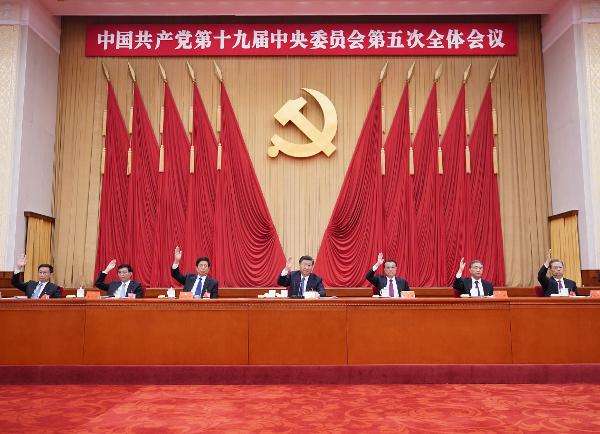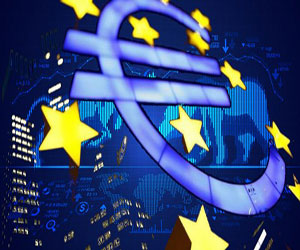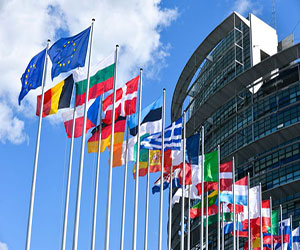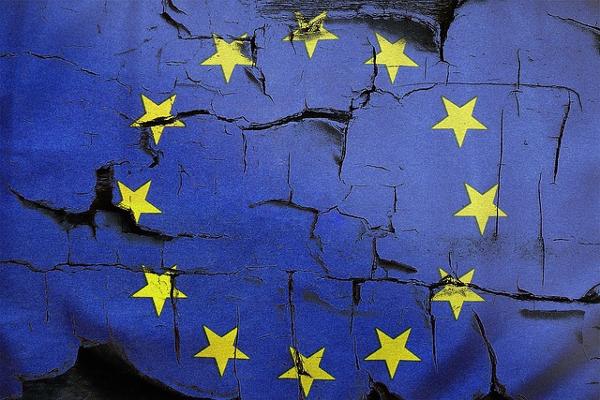One month after the 6th Plenum of the 19th Central Committee of the Communist Party of China (CPC), efforts to unpack the historical and political significance of the event have abounded. Particular interest was given to the resolution on the “Major Achievements and Historical Experience of the Party over the last Century” (“中共中央关于党的百年奋斗重大成就和历史经验的决议”) that presented an assessment on the first one hundred years since the foundation of the CPC. The resolution portrays a rosy picture whereby China has made huge progresses at all levels under the guidance of the Communist Party. In addition, the 6th Plenum officialized the convocation of the 20th National Congress of the CPC (“中国共产党第二十次全国代表大会于2022年下半年在北京召开”). As expected, the leadership of Secretary General Xi Jinping, currently holding a presidential second term, was confirmed towards and beyond the 20th CPC congress, convened for the second half of next year.
The communiqué issued at the conclusion of the Plenum (Chinese here) provides significant insight over Chinese authorities’ emphasis on the continuity of China’s history under the guidance of the CPC. The 6th Plenum makes no exception in this context, as it portrays the recent political developments as nothing short of a linear, consequential step forwards within the framework of China’s and the Party’s history. At a closer look, however, both the resolution on the CPC historical experiences and the convocation of the 20th Party congress establish a remarkable rupture within such history.
The vindication of Xi as China’s leader beyond a second term breaks away with the tenets of collective leadership and political turnover – if both with significant limitations – established by Deng Xiaoping and upheld by every generation of Chinese leaders thereafter. With the removal of the two-term limit on the presidency approved by the National People’s Congress in 2018, without a plausible successor coming under the spotlight during previous institutional events (as per a common practice dating as far back as the Maoist era), and with CPC institutions increasingly rallying in support of Xi, there is no reasonable expectation not to see China’s leader to hold onto power after the 20th CPC congress. On the contrary, the inauguration of a third term for Xi will act as the epitome of the consolidation of his power within the Party-state (infringing the principle of collective leadership) and defy the two-term limit (putting on hold the praxis of “political turnover”) established in the Deng era.
Secondly, describing the historical evolution of the CPC and its reverberances in present days in apologetic, all-out positive tones, constitutes an unprecedented move. Indeed, the two other historical resolutions in the CPC history, in 1945 and 1981, provided a more complex, and explicitly more problematic overview on the Party’s historical experiences. In 1981, especially, President Deng Xiaoping offered a critical assessment of the Cultural Revolution (1966-1976), describing the Maoist period with a mixture of both positive and negative tones (according to the well-known formula “70 percent positive, 30 percent negative”). None of such attempts to identify potential, real, and prospective shortfalls, deficiencies or critical aspects in the Party’s posture can be found in the resolution issued at the 6th Plenum.
Yet, a few paragraphs in the communiqué provides a more honest assessment of the challenges China faces at present times. The predicament brought about by the Covid pandemic is not alone on the list, as the communiqué bluntly mentions that “the external environment has become increasingly complex and grave” (“外部环境更趋复杂严峻”) over the past year. In spite of its lack of details, the wording is telling in revealing the Chinese leadership’s awareness as to the multiplication of hurdles in its relations with the foreign world, and most notably vis-à-vis the western hemisphere. Here, the relations with the US have not turned for the better notwithstanding the political turnover in Washington. Certainly, President Joe Biden and Secretary of State Anthony Blinken are capable to speak in a more reasonable language compared to their predecessors, but few – if any – changes occurred as to the US perception of, and actions towards, Beijing.
In Europe, the pandemic ushered in a phase of increasingly vocal criticism towards China, accompanied by more confrontational policies in nearly all domains. In the economic realm, long-standing claims by EU member states as to the establishment of a more equitable relationship have intensified. If reaching the long-awaited EU-China Comprehensive Agreement on Investment (CAI) in late 2020 was hailed as a milestone, after more than seven years of troubled negotiations, the opposition of the European Parliament (EP) towards its ratification, as emerged a few months after, proves telling in revealing the state of the art in the bilateral relations. In addition to this, the fact that the EP’s opposition was due to widespread criticism over human rights abuses in China, provides insight into the political unease spreading out in Brussels and the other European capitals. In 2021, China and the EU engaged in bilateral sanctions in unprecedented ways. After the EU approved sanctions on a group of key Chinese politicians and bureaucrats, Beijing retaliated targeting a number of political figures, members of the EP, end even think-tanks and scholars. The main reasons behind EU sanctions include some of the hottest and most debated topics regarding China domestic politics, most notably human rights violations over Uighurs and other ethnic minorities, and the deterioration of the judicial and political autonomy of Hong Kong. A third realm where the European concern is apparent lays in the security domain. Recently, a number of EU member states (notably France and Germany) and the Union itself issued their own version of the “Indo-Pacific strategy”. While these moves seem to echo former US President Trump’s strategic focus on the “Free and Open Indo-Pacific”, more tellingly they reveal increasing attention and scrutiny from the EU and some of its member states on the implications of what is perceived as the strategic expansion and consolidation of China in the region. No need to say, China does not welcome such moves as positive gestures and firmly criticizes them. Finally, as if it were not enough, the past year witnessed a tremendous deterioration of China’s international image among large swathes of the European population.
If relevant, these frictions are only a portion of the whole list, and yet they fit well into the 6th Plenum definition of a “complex and grave external environment”. Nevertheless, in spite of simmering tensions and increasingly sour relations between Beijing and the west, Chinese leaders have done little to build bridges with Europe. On its part, the EU cannot be said to have put much effort either. However, as far as the 6th Plenum is concerned, Beijing seems not eager to show a more credible commitment to addressing Europe’s concerns. On the contrary, Chinese leaders seem to have set off on a journey leading farther away from European expectations, feeding into a process of increasing diplomatic estrangement that is not likely to improve anytime soon.
China’s 6th Plenum: Political ruptures and its implications for Europe






















